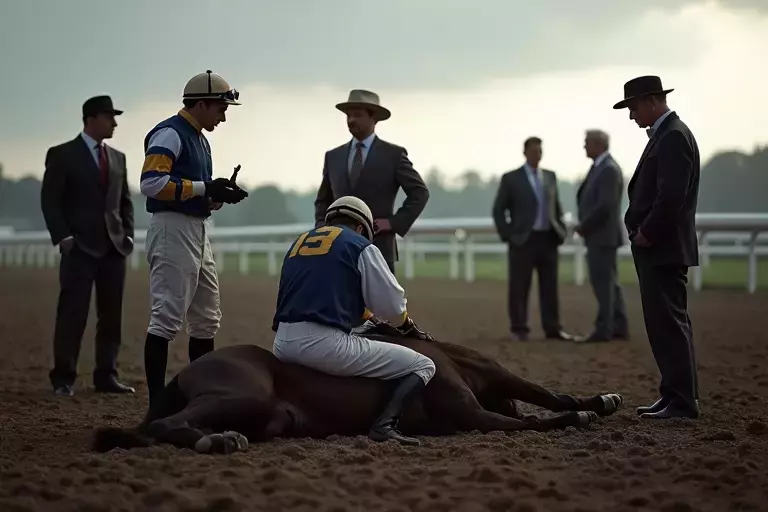







In a recent controversy surrounding the St. Thomas-St. John Horse Racing Commission, former chair Jay Watson has reignited discussions about alleged neglect and misconduct within the organization. Following last year's alarming incidents of horse injuries and fatalities during races, Mr. Watson accuses the commission of failing to address underlying issues such as unregulated doping practices and insufficient oversight. While the public awaits official findings from an ongoing investigation into these events, Mr. Watson insists that commissioners should be more transparent regarding their handling of the situation. He questions whether the commission is adequately addressing horse conditions and calls for stricter enforcement of anti-doping regulations.
Details of the Controversy
In the wake of multiple equine injuries and deaths during races on December 22, 2024, concerns have arisen over the management of the Clinton E. Phipps race track. Former Commission Chair Jay Watson has expressed significant dissatisfaction with how the St. Thomas-St. John Horse Racing Commission (HRC) has handled investigations into these tragic incidents. During a heated meeting, commissioners dismissed Mr. Watson's allegations linking horse doping to the accidents. However, Mr. Watson remains adamant that deeper scrutiny is needed concerning the so-called "horse condition," which he believes encompasses pre-existing injuries, disease, malnutrition, or general unfitness for racing.
Mr. Watson also highlights what he perceives as a lackadaisical attitude towards enforcing anti-doping legislation, suspended since 2023. Despite advocating for its reinstatement, the HRC has allowed races to proceed without implementing proper safeguards against doping. This decision, according to Mr. Watson, stems from inadequate leadership within the commission. Furthermore, he criticizes Commissioner Laura Palminteri for potential conflicts of interest due to her involvement in providing services directly related to horsemen while simultaneously regulating them. Such dual roles, he argues, undermine public trust in the commission’s impartiality.
The former chair emphasizes that drugged horses are at higher risk of catastrophic breakdowns leading to severe injuries or death. He attributes this pervasive problem to deficiencies among local trainers who rely excessively on doping rather than ensuring sound training practices. In addition, Mr. Watson reiterates his long-standing concern about possible unethical behavior within the current commission structure, urging greater transparency and accountability.
Historically, tensions within the commission surfaced when Mr. Watson was removed from his position in 2019 following motions by Commissioners Sheldon Turnbull and Hugo Hodge, now serving as chair. During last week’s session, dismissive remarks were made by Messrs. Turnbull and Hodge regarding Mr. Watson’s persistent criticisms.
From a journalistic perspective, this case underscores the critical importance of regulatory integrity in high-stakes industries like horse racing. It serves as a reminder that protecting animal welfare requires robust systems free from corruption or bias. As stakeholders continue debating reforms necessary to restore confidence in Virgin Islands horse racing, one hopes that constructive dialogue will prevail over entrenched interests. Ultimately, ensuring safety standards benefit not only animals but also preserve the sport's legitimacy in the eyes of both participants and spectators alike.
